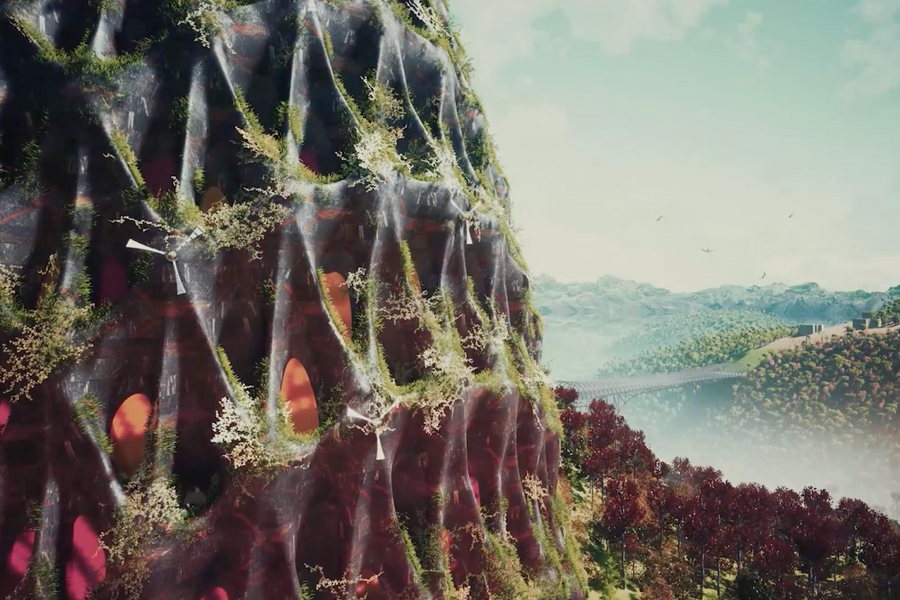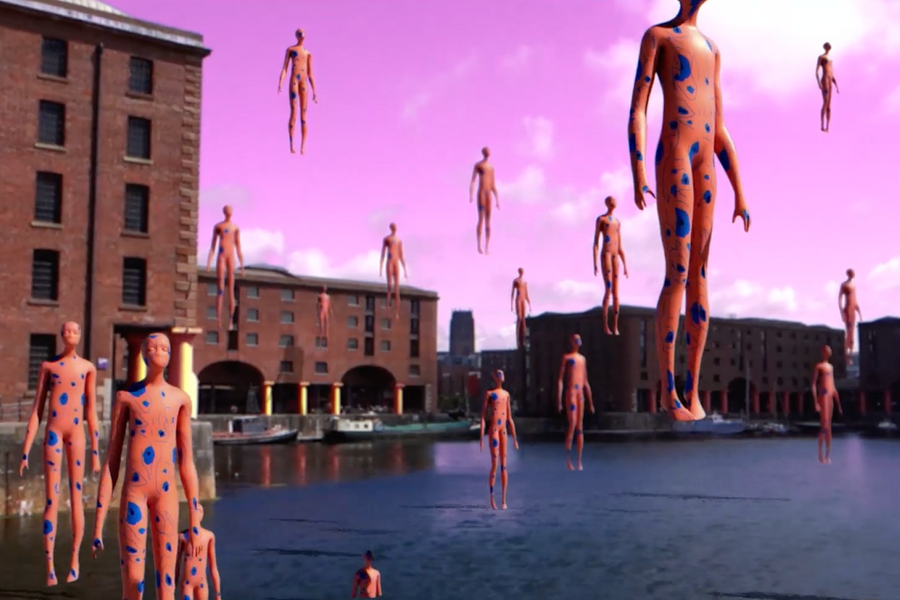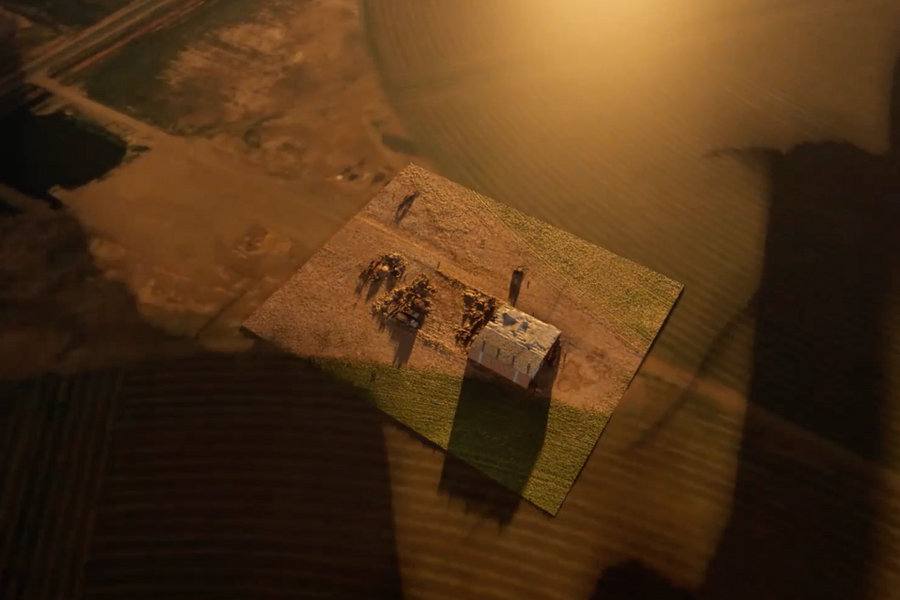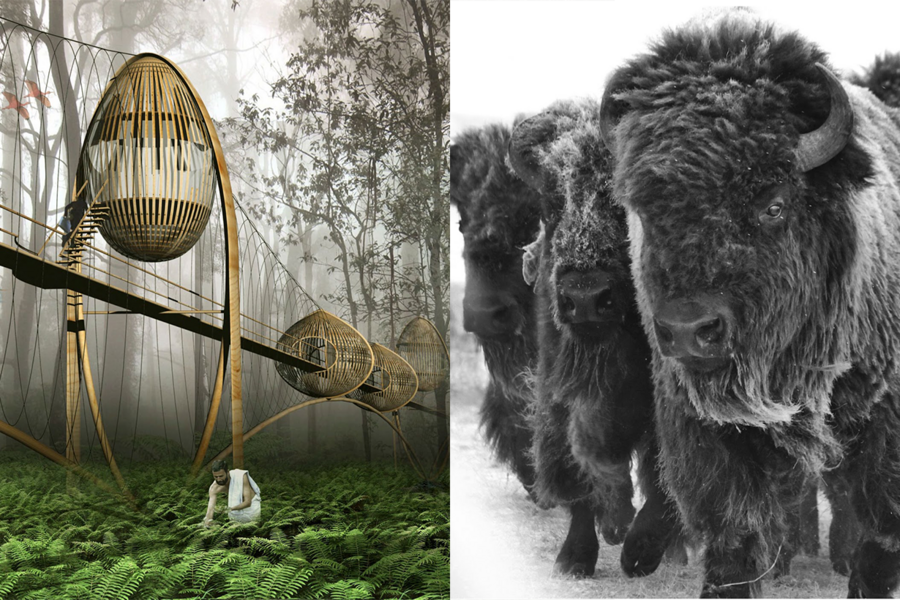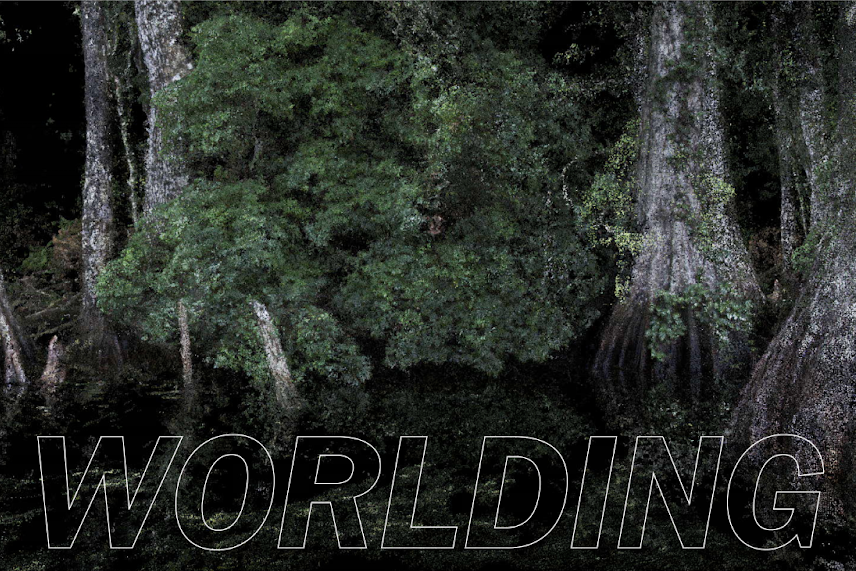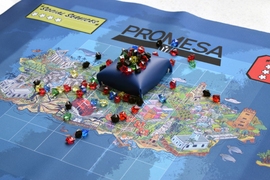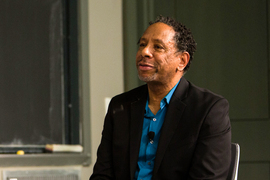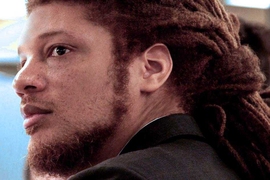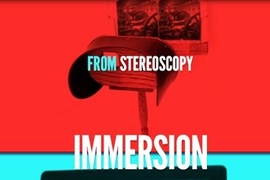Imagine entering a 3D virtual story world that’s a digital twin of an existing physical space but also doubles as a vessel to dream up speculative climate stories and collective designs. Then, those imagined worlds are translated back into concrete plans for our physical spaces.
Five multidisciplinary teams recently convened at MIT — virtually — for the inaugural WORLDING workshop. In a weeklong series of research and development gatherings, the teams met with MIT scientists, staff, fellows, students and graduates as well as other leading figures in the field. The theme of the gathering was “story, space, climate, and game engines.”
“WORLDING illustrates the emergence of an entirely new field that fuses urban planning, climate science, real-time 3D engines, nonfiction storytelling, and speculative fiction,” says Katerina Cizek, lead designer of the workshop at Co-Creation Studio, MIT Open Documentary Lab. “And co-creation is at the core of this field that allows for collective, democratic, scientific and artistic processes.” The research workshop was organized by the studio in partnership with Unity Software.
The WORLDING teams met with MIT scholars to discuss diverse domains, from the decolonization of board games, to urban planning as acts of democracy, to behind the scenes of a flagship MIT Climate Challenge project.
“Climate is really a whole-world initiative,” said Noelle Selin, an MIT atmospheric chemistry professor, in a talk at WORLDING. Selin co-leads an MIT initiative that is digitally twinning the Earth to harness enormous volumes of data for improved climate projections and put these models into the hands of diverse communities and stakeholders.
“Digital twinning” is a growth market for the game engine industry, in verticals such as manufacturing, architecture, finance, and medicine. “Digital twinning gives teams the power to ideate,” said Elizabeth Baron, a senior manager of enterprise solutions at Unity in her talk at WORLDING. “You can look at many things that maybe aren't even possible to produce. But you're the resource. Impact is very low, but the creativity aspect is very high.”
That’s where the story and media experts come in. “Now, more than ever, we need to forge shared narratives about the world that we live in today and the world that we want to build for the future. Technology can help us visualize and communicate those worlds,” says Marina Psaros MCP '06, head of sustainability at Unity, lead on WORLDING at Unity, and a graduate of the MIT Department of Urban Studies and Planning.
In his talk on the short history of WORLDING, media scholar William Uricchio, MIT professor of comparative media studies and founder of the Open Documentary Lab, suggested that story and space come together in these projects that create new ways of knowing. “Story is always a representation,” he says. “It's got a fixity and coherence to it, and play is — and, I would argue, worlds are — all about simulation. Simulation in the case of digital twinning is capable of generating countless stories. It’s play as a story-generator, but in the service of envisioning a pluralistic and malleable future.”
Fixed dominant narratives and game mechanics that underpin board games have been historically violent and unjust, says MIT Game Lab scholar Mikael Jakkobson, who shared findings for his upcoming book on the subject with the cohort. He argues that board games are built on underlying ideas of “exploration, expansion, exploitation, and extermination. And, as it happens, those are also good ways of thinking about the mechanics of Western colonialism.”
To counter these hegemonic mechanics and come up with new systems, community is vital, and urban planning is a discipline that plays a huge role in the translation of space, story, and democracy. Ceasar MacDowell, an MIT professor of the practice of civic design, told the WORLDING cohort that urban planning needs to expand its notion of authorship. He is working on systems (from his current position at the Media Lab) that not only engage the community in conversations but also prompt “the people who have been in conversations to actually make sense of them, do the meaning-making themselves, not to have external people interpret them.” These become dynamic layers of both representation and simulation that are not, as Uricchio suggests, fixed.
USAID Chief Climate Officer Gillian Calwell visited the group with both sharp warnings and warm enthusiasm: “When it comes to climate, this world isn't working so well for us; we better start envisioning the new ones, and fast ... We don't have time to convince people that this is happening anymore. Nor do we need to. I think most of the world is having the hands-on, up-close-and-personal experience with the fact that these impacts are coming faster and more furiously than even the scientists had predicted. But one thing we do need help with on a more hopeful note is visualizing how the world could be different.”
The WORLDING workshop is designed and inspired by the ideas and practices charted in the Co-Creation Studio’s new MIT Press book, “Collective Wisdom: Co-Creation Media for Equity and Justice,” which insists that “No one person, organization, or discipline can determine all the answers alone.”
The five multidisciplinary teams in this first WORLDING cohort were diverse in approach, technology, and geography. For example, one is an Indigenous-led, land-based, site-specific digital installation that seeks to envision a future in which, once again, the great herds of buffalo walk freely. Another team is creating 3D-modeled biome kits of the water systems in the drought-stricken American West, animated by interviews and data from the communities living there. Yet another team is digitally twinning and then re-imagining a sustainable future in the year 2180 for a multi-player virtual reality game in a Yawanawà Shukuvena Village in the rainforests of Brazil.
“While our workshop design was focused on developing and researching these incredible, interdisciplinary projects, we also hope that WORLDING can set an example for similar initiatives across global sectors where distances and varied expertise are not limitations but opportunities to learn from one another,” says Srushti Kamat, WORLDING producer and MIT creative media studies/writing grad.
Most of the talks and presentations from the WORLDING workshop are available as archived videos at cocreationstudio.mit.edu/worlding-videos.
